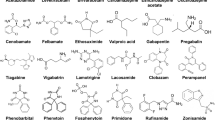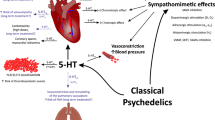Abstract
Objective: To study the neuro-psychiatric adverse effects of antimalarial drugs.
Setting: Persons who visited a Travel Clinic in Rotterdam over a period of 3 months.
Design: Prospective cohort study on 394 persons taking mefloquine, 493 persons taking proguanil and 340 persons not taking antimalarial drugs who visited Africa, South America, Asia, or the Middle East.
Methods: All persons received a structured questionnaire within 14 days of their return to the Netherlands. The questionnaire consisted of questions regarding use of alcohol, smoking, general health, medical history, tropical diseases during the trip, and other medicines, and contained an extensive list of general complaints regarding all body systems at four levels of severity. A modified and validated version of the Profile of Mood States was included.
Results: In the study period, 2541 persons visited the Travel Clinic, of whom 1791 (70%) were both eligible and willing to co-operate. Of these 1791, data were obtained from 1501 (84%). Insomnia was most frequently encountered in users of mefloquine and mouth ulcers in proguanil users. After adjustment for gender, age, destination, and alcohol use, the relative risk for insomnia to mefloquine versus non-users of antimalarials was 1.6, and the excess risk was 6 per 100 users over an average period of 2 months. There were no significant differences between groups in depression, anxiety, agitation, and confusion. Stratification by gender demonstrated that insomnia was more common in women on mefloquine, but not in men. Also, women more frequently mentioned palpitations as an adverse event. After adjustment for age, destination, and alcohol use in women, the relative risks for insomnia and palpitations to mefloquine versus non-use of antimalarials were 2.4, and 22.5, respectively. When travellers were specifically asked for the adverse reactions they had experienced, anxiety, vertigo, agitation, and nightmares were significantly more frequently mentioned by mefloquine users.
Conclusion: Insomnia was more commonly encountered during use of mefloquine than proguanil or during non-use of antimalarials.
Similar content being viewed by others
Author information
Authors and Affiliations
Rights and permissions
About this article
Cite this article
van Riemsdijk, M., van der Klauw, M., van Heest, J. et al. Neuro-psychiatric effects of antimalarials. E J Clin Pharmacol 52, 1–6 (1997). https://doi.org/10.1007/s002280050240
Issue Date:
DOI: https://doi.org/10.1007/s002280050240




